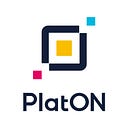TradeGo and PlatON Successfully Pilot Digital Currency Payments Triggered by Electronic Bills of Lading

On July,15th,2024, TradeGo and digital public infrastructure PlatON collaborated to successfully complete a pilot (PoC) in a segregated production environment. This pilot was based on a rubber import transaction to China from Thailand with an amount of USD 1.17 million and involved the use of electronic bills of lading (eBL) to trigger cross-border payments in digital currency.
The PoC verified the optimization effects of combining blockchain electronic bills of lading, digital currency, and smart contracts in international trade on trade processes, settlement methods, and payment costs. The pilot demonstrated that, upon simultaneous payment and delivery, it not only mitigated market and credit risks during the transaction process but also achieved a cost savings of up to 90% in both direct and indirect payment costs.

The bill of lading is a crucial document in international trade. Blockchain electronic bills of lading (eBL), as an alternative to paper bills of lading, not only possess the same validity and functions as paper bills but also offer features such as structured data, tamper resistance, traceability, and programmability. These characteristics enhance data verification and enable automatic execution, especially when combined with digital currencies.
This pilot project leverages the combined use of smart contracts and TradeGo’s electronic Bills of Lading (eBL), based on PlatON’s TOPOS, a Web3.0 confidential payment and clearing system, to achieve automatic triggering of digital currency payments after document presentation by both trade parties. Upon the seller sending the TradeGo eBL to the buyer, the smart contract verified triggering conditions. Once these conditions were met, the contract automatically executed the payment by transferring funds from the buyer’s digital currency account to the seller’s account. Throughout the pilot process, all operations and transaction records were stored on the blockchain to ensure transaction security and traceability.
As the solid technical support for this pilot project, PlatON provides financial-grade system stability and exceptional performance. Its Web3.0 confidential payment and clearing system, TOPOS, not only significantly enhances the efficiency of cross-border payments but also enhances transaction transparency. This pilot project is not only a breakthrough at the technical level but also an innovative demonstration of international trade payment methods. Through verification in actual business scenarios, it provides the industry with a feasible and efficient cross-border payment solution, leading the industry towards lower costs and higher efficiency.
The pilot results demonstrate that the innovative solution of using electronic bills of lading to trigger digital payments has significant potential in cross-border settlement and payment scenarios in international trade.
“Delivery versus Payment “ executed automatically
In cross-border trade, both “payment upon delivery” and “delivery upon payment” scenarios pose higher trust risks for one party. Relying on traditional letters of credit addresses mutual distrust but involves lengthy, complex processes and increased transaction costs. Leveraging digital innovation with international trade title documents — electronic bills of lading(eBL) triggering instant payments — enables instantaneous exchange of goods and funds. This achieves a novel settlement model of “delivery versus payment”, significantly reducing trust costs for transacting parties.
Transactions are settlements,funds are received instantly
Using digital currencies for cross-border payments can significantly reduce economic and time costs, directly cutting transaction fees by over 90%. Moreover, it facilitates instant fund transfers, greatly enhancing transaction efficiency and liquidity.
We believe that the deep integration of central bank digital currencies (CBDCs) and electronic bills of lading will promote the digital transformation of the international trade payment system. With the widespread adoption of electronic bills of lading, it is projected that by 2030, eBLs will achieve 100% application in international trade. This signifies that all global trade entities will access a new trade system, potentially supporting CBDCs or compliant stablecoins. Industry consensus suggests that this will give rise to a new international trade infrastructure, known as the Global Inter-entity Financial and Trading Society (GIFTS). This society will not only support international trade but also provide financial services. GIFTS aims to create a more efficient, secure, and transparent trading environment, stimulating trade activities worldwide.
Next, TradeGo will continue exploring the innovative integration of central bank digital currencies (CBDCs) with PlatOn for their application in trade. We will also advance international trade pilot projects based on various countries’ CBDCs and compliant stablecoins. We invite partners from various sectors to collaborate with us in exploring future pilot projects and implementing real business scenarios.
